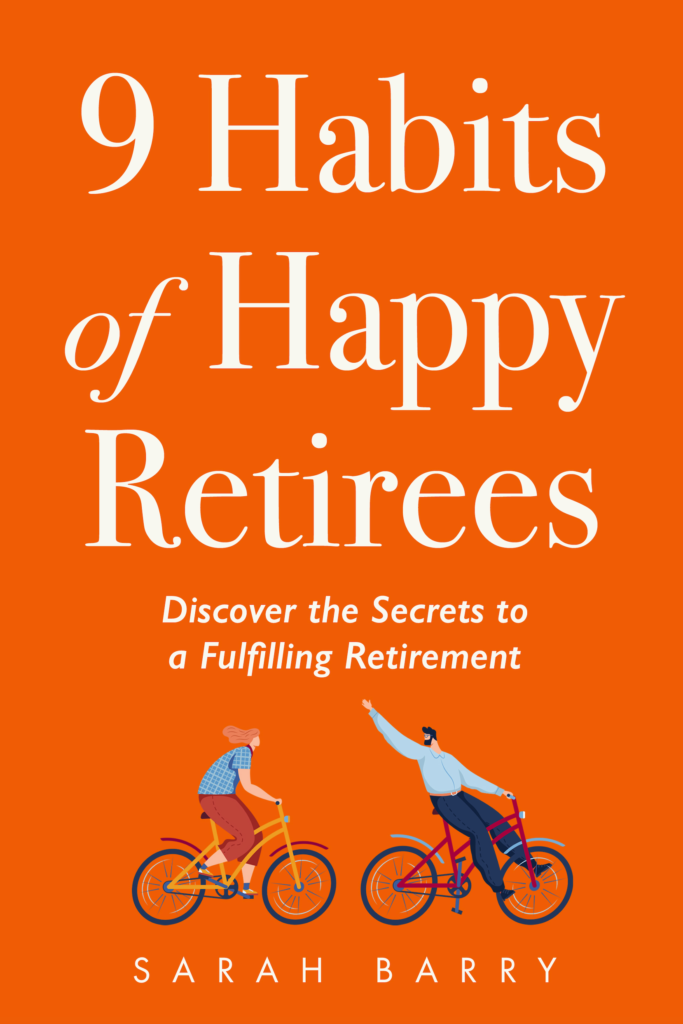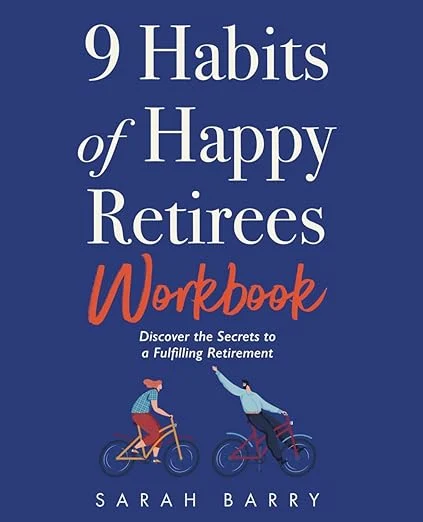3 Ways Happiness Can Lead to a Longer Life
Why emotional well-being is just as important as eating your greens in retirement
There comes a time in life—especially around retirement—when you start thinking more seriously about your health and longevity. You begin paying closer attention to your diet, your sleep, your physical activity. You may even keep up with the latest health trends or technologies promising to turn back the biological clock.
But there’s one longevity tool many overlook. It doesn’t cost anything. It doesn’t require a prescription. And you already have access to it:
Happiness
It might sound simplistic, but the research is clear—emotional well-being is linked to physical health and longevity. Studies suggest that people who report higher levels of life satisfaction, optimism, and joy tend to live longer and recover more easily from illness. That’s because happiness isn’t just a mood—it’s a physiological and psychological resource.
In retirement, when your routines, social roles, and ambitions shift, focusing on happiness isn’t just a nice-to-have—it’s a core strategy for living a longer, more vibrant life.
Let’s explore three essential ways that happiness supports longevity—especially in this next chapter of life.
1. Happiness Helps You Feel Content—and Contentment Reduces Stress
For much of life, we’re taught to keep moving. Achieve more. Buy more. Be more. We climb ladders, check boxes, hit milestones. But after decades of striving, retirement offers a rare and beautiful opportunity to pause and ask:
What is enough?
Happiness helps you find that answer—not in terms of income or achievements, but in feeling at peace with your life as it is. Contentment is a powerful emotional state. It creates a calm baseline for your nervous system. You breathe easier. You sleep better. Your stress hormones drop. And your mind doesn’t spin with the anxiety of needing more.
This isn’t about giving up ambition. It’s about choosing wisely. When you’re happy and content, you no longer chase high-risk opportunities that may bring status but also strain—like part-time roles that drain your energy, overcommitting to caregiving responsibilities, or pushing your body beyond healthy limits to “stay productive.”
Instead, you start to ask:
- What brings me joy without wearing me out?
- What truly matters to me now?
- How can I protect my peace?
Research shows that chronic stress accelerates biological aging and increases risk for heart disease, high blood pressure, and cognitive decline. Happiness, particularly the steady kind that comes from contentment, is an antidote. It doesn’t just make you feel better—it helps your body function better, too.
2. Happiness Builds Emotional Resilience in the Face of Life’s Challenges
Let’s be honest—retirement isn’t all leisure and sunsets. It can bring emotional upheaval, too. You might face identity shifts, feelings of irrelevance, family changes, the loss of friends or a partner, or the everyday uncertainties of aging.
In those moments, resilience matters. And happiness—especially in the form of optimism, gratitude, and a sense of meaning—makes you more resilient.
Happy individuals tend to see challenges as temporary and manageable. They’re more likely to:
- Seek support instead of isolating
- Adapt to new circumstances more flexibly
- Reframe setbacks as growth opportunities
- Maintain perspective in the face of loss
In contrast, people who feel helpless or chronically pessimistic often struggle to bounce back. They may disengage, experience higher rates of depression, or neglect their own self-care.
So what does resilience look like in retirement? It could be:
- Choosing to learn a new skill after downsizing your home
- Finding joy in simple daily routines after a major life transition
- Staying engaged in community even when energy levels shift
- Making peace with aging by focusing on legacy and love instead of youth
Happiness doesn’t make problems go away—but it equips you to move through them with greater grace, courage, and health.
3. Happiness Encourages Healthier Choices and Habits
One of the most interesting findings in longevity research is how closely our behaviors are linked to our emotional state. People who feel good about their lives tend to take better care of their bodies.
Why? Because when you’re happy, you see yourself as worth caring for. You’re more likely to:
- Prepare healthy meals instead of eating mindlessly
- Go for a walk because it feels good, not just because you “should”
- Stay on top of medical appointments and preventative care
- Reduce or eliminate harmful habits like excessive drinking or smoking
- Prioritize rest, sleep, and relaxation
Happiness reinforces motivation. It gives purpose to your habits. You don’t just exercise because your doctor told you to—you do it because it helps you play with your grandkids, explore nature, or sleep better so you can wake up feeling energized for the day.
And these small, consistent behaviors are powerful. They support cardiovascular health, mobility, cognition, and immune function—all key ingredients in a longer, more independent life.
In contrast, when you’re emotionally depleted, it’s easy to slip into neglectful patterns: eating for comfort, avoiding movement, ignoring symptoms, numbing with substances, or withdrawing from meaningful routines.
By focusing on cultivating happiness, you create a positive feedback loop: feeling good helps you care for yourself better, and caring for yourself well makes you feel even better.
Happiness Is a Lifestyle—Not a Destination
Retirement invites you to redefine what happiness looks like. For some, it’s rooted in relationships: family dinners, walks with a partner, long chats with friends. For others, it’s found in creativity, solitude, spiritual connection, or volunteering.
The key is that happiness is personal. There’s no one version of it, and you don’t need anyone else’s permission to prioritize it.
What we do know is this:
- You don’t need to be wealthy to be happy.
- You don’t need to be constantly busy to feel useful.
- You don’t need to avoid aging—you need to embrace it with curiosity, not fear.
Happiness isn’t about constant joy or perfection. It’s about building a meaningful, satisfying, emotionally rich life. And that kind of life not only feels better—it lasts longer.
Ways to Cultivate More Happiness in Retirement
If you’re wondering how to begin, try a few of these ideas:
- Start a gratitude journal—write down 3 things each day that made you smile
- Schedule regular connection points with friends or family
- Spend time outdoors—nature improves mood and reduces stress
- Learn something new—language, music, crafts, or history
- Volunteer or mentor—give your time to something that matters
- Meditate or engage in mindfulness practices—even 5 minutes a day can help
- Create a “joy list”—a running note of small things that uplift you
Even tiny acts of joy compound over time. The goal is not perfection—it’s emotional momentum.
Final Reflection: Retirement Happiness Isn’t a Bonus—It’s a Blueprint for Longevity
You’ve worked hard. You’ve earned your retirement. Now give yourself permission to truly enjoy it. Let go of guilt. Let go of pressure. Let go of outdated ideas that say “slowing down” is the same as “wasting time.”
Instead, embrace happiness—not as something frivolous, but as a vital part of your long-term health plan. Because when you prioritize emotional well-being, you’re not just adding years to your life—you’re adding life to your years.
If you’re looking to live longer and better, science says to keep smiling.
Ready to bring more joy, purpose, and balance into your retirement years?
Explore 9 Habits of Happy Retirees and the companion workbook—your next chapter starts here. Find them now on Amazon.

Retirement Re-defined
“9 Habits of Happy Retirees” is your guidebook to crafting a retirement lifestyle that goes beyond financial security, focusing on the habits that lead to true happiness and contentment in your golden years.

The Essential Workbook
This workbook is designed to complement the book’s theoretical foundation, it offers a hands-on approach to improving your mental, emotional, and social well-being in retirement.

